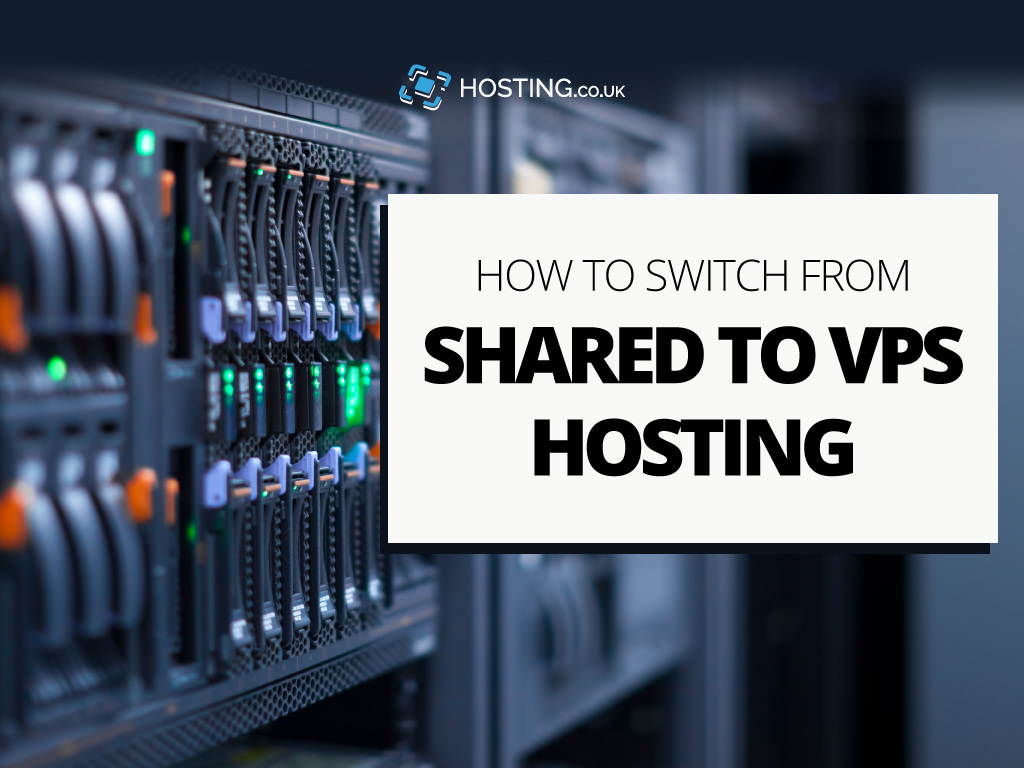Deciding on a web hosting plan can seem like a tedious task, but knowing what your website’s goals and objectives are, will help you determine between, a shared and VPS hosting plan, for example. And if you chose a shared hosting plan, what are some of the benefits of moving from shared to VPS hosting? What does that process look like? We’ll answer those questions and more in this post.
Table of Contents
What is shared hosting?
Shared hosting basically web hosting that’s shared between a one server and multiple websites. When you sign up for a shared hosting plan, you are agreeing to get a certain portion of the server’s resources like disc space, account and database. Shared hosting is pretty cheap. It is actually one of, if not the most cost effective and popular web hosting options.
If you feel that a shared hosting server suits your budget better, have a look at the specs to make a final decision. See the technical specification here.
What Is VPS hosting?
On the opposite side of shared hosting is where you’ll find VPS or Virtual Private Server hosting. But what is it? In complicated terms, it’s a web hosting server that operates as a website’s storage center for files and data. But put simply, VPS hosting is pretty similar to an apartment complex living arrangement. The idea is that everyone shares the compound but has their own apartment with its own set of resources.
So, each ‘tenant’ gets his or her own utilities, cable, phone and grocery bills.
How does VPS Hosting Work?

Remember the apartment complex analogy above?
That’s really how VPS hosting works. It’s a server that has its own copy of operating system and allocated server resources within a larger server. In the same way that the developers for the compound divide it into apartments because they want it sold, but knows one person might not be able to buy it, VPS hosting providers split up one powerful server into multiple virtual servers to make it more cost-effective for users.
As a VPS user, you get some benefits of a dedicated server, like, logins, system processes, custom application software and file-systems with unlimited root access.
VPS also has customisable firewall protection, offers the highest level of security and secures your isolated disk space, factors which also make it similar to a dedicated server. Interested in a VPS? Take a look at the technical specifications of one of the best virtual private server for business and private sites.
What are some VPS hosting advantages?
1. Increased resources
Needing more resources than your shared hosting server offers, is a major reason for switching to VPS hosting. Overtime, there may be an increase in the traffic to and content on your website which will require more bandwidth and disk space.
To satisfy that need, you may find yourself having to move from shared to a VPS hosting plan, because you want to be able to grow and develop with your website.
2. Scalability
On a shared hosting server, you are given a specific amount of resources. If you happen to go over the limit to satisfy your site’s demands, it can negatively impact other users.
Switching to VPS hosting fixes that problem, because it offers scalability. This means users can start off with the very basic amount of resources they need at the time and then add or subtract as is deemed necessary. This also means that you only pay for what you use, which could prove very cost effective.
3. Greater Control
VPS provides root access which allows users to have total control over their account. With root access, users have more control over their virtual server, which gives them the independence to modify their setup to meet their needs.
VPS also gives users the autonomy to install as many software as they need to and they don’t need to get approval to do this because it can be done from their control panel application.
4. Performance and Stability
On a shared hosting plan, what your neighbor does affects you. That’s not the case with VPS hosting because you get your own dedicated resources, so another user’s actions do not necessarily impact your operations.
What this does, is that it provides stability to you and your customers, by guaranteeing you a certain load time on your website, generally between 99.5 and 99.9 percent, which is much faster than that of many shared hosting sites.
5. Increased Security
VPS hosting increases your security and reliability by ensuring you have your own, dedicated server. This is just another of the VPS hosting advantages. Think back on the apartment complex analogy. What your neighbour in the apartment next to you does, has no direct impact on what you do. The same is true with VPS hosting. What others do on their server, does not affect yours.
So, if you are on a shared hosting plan and are concerned about a security breach, it’s a good time to consider moving to a VPS hosting plan. Cost-efficiency and customer support are other benefits to move from shared to VPS hosting.
Moving from shared to VPS hosting
So, you’ve decided to move from shared to VPS hosting plan, what do you need and how do you actually get it done? The process doesn’t have to be difficult. Follow these simple and hassle-free ways of switching from shared hosting account to VPS with cPanel.
- To begin the process, you need to have access to your shared hosting account and your domain’s management panel. You can access this in your cPanel.
- After ensuring you have access to those, the next step is to transfer full cPanel backup from shared hosting account to VPS.
- Once the backup transfer is done, you will need access to WHM panel and then run the Initial Setup Wizard.
- Next up is to restore backup on the VPS using the WHM. This part of the process is to ensure your account is successfully migrated.
- The final step includes Domain Name System or DNS and nameserver management, which allows your domain to start pointing to the new VPS server.
Do you already host with us your shared server with hosting.co.uk? Here’s a quick look at this support article to simply upgrade your plan and instantly get more space.
Conclusion
While shared hosting is a great platform to start off your online platform with, overtime your site may demand more than that plan can deliver. There are many VPS hosting advantages to be had and opting to use a VPS will give you more resources, scalability, security and greater control, perform and stability. A VPS may be more in line with the growth and development of your website.
Once you’ve decided to move from shared hosting to VPS hosting, the process is not difficult and can easily be done if you follow a clear and concise step by step process. However, if you require some help, reach out to our help desk. We’ll gladly discuss upgrading to VPS – we can even do it for you.
